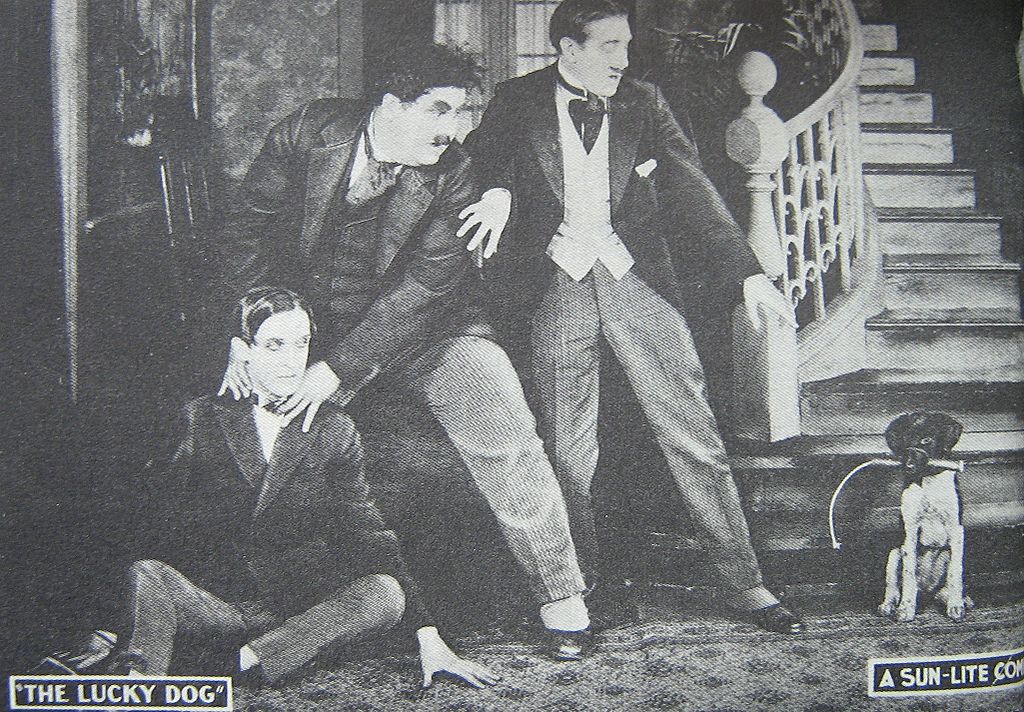
See: my uncle was once a contestant on Mastermind. Early eighties, height of The Troubles, and, believe it or believe it not, in his own provocative way he chose the 1916 Rising as his specialist subject. The moment came, and Magnus fixed his eye on Uncle Kev in the hot seat—he spoke eloquently later, my uncle, about the heat of the singular bulb, and the spooky atmosphere when the lights fell and all in the studio beyond sat silent, unseen—and all too quickly, Magnus began:
Who read the proclamation on the steps of the GPO in Dublin?
Uncle Kev stuttered; time lurched: Pass.
Which signatory was executed while strapped to a chair?
Uncle Kev glared up, like a fish on the floor of a boat. All black beyond him: Pass.
The questions came thick and fast; Kev’s eyes searched his shoes, then his tie. He was utterly stumped; he passed again, and again.
Then—suddenly—a Northern voice cheered him from the void where the audience must have been: Go’wan, Kev! Tell them Tans nothing!
No: that’s not true. It is a joke. I found it by googling, and chose it because it seemed like it might work on the page (or screen). I thought this could be used to pass the time in good humour; to aid the enjoyment of the pint. To see you laugh across the table from me, and to feel my own laughter inside me. So that maybe you might tell me one, and that we might continue that way for an hour, or more, exchanging jokes and tales—true or not, exaggerated or not—and that we might share the time and ourselves and everything in between, the both or all of us feeling good and happy about the world this night.
But this is all a fantasy. A paragraph on a page. Because the truth is that nobody has shared a good joke with me in ages.
***
Cut to true personal anecdote.
Listen: long years I idolised my grandfather: Walter Whitty, a merchant seaman from Waterford. And thusly, when he had his third (or fourth) heart attack, I rushed [via tempestuous Stenaline crossing] from my monotonous post in London to his hospital bedside. But he was already sat up in the bed and chatting again by the time I dropped my duffle bag and collapsed in the seat next to his bed, the chemical smell awakening my earliest sense-memories, and he was telling my father that when he’d been admitted he couldn’t sleep a wink. (This is in fact a joke, which Granddaddy presented as a story, and it seems almost a bad idea to present it as a joke, because it doesn’t work on the page, but herein lies the issue: how can literature accurately represent the beauty of the oral? It can’t. And so I prep you. And yet then I press on. This parentheses is, essentially, the wry corner of the lip, that’s nearly a smile, which appears about halfway through the story, so that you know your suspicions are true; it is, in fact, a joke)
He said: On my first night in I couldn’t sleep at all. It was poxy. I lay awake long after the others on the ward fell asleep, and they won’t leave you turn on the TV after lights out so I was listening to the other fellas snorting and snoring and farting, and I didn’t want to wake anyone up so I couldn’t even put me own lamp on. I was just laying there! And well eventually I couldn’t hack it anymore so I switched me lamp back on and started to read yesterday’s paper, and I hadn’t even got past the headlines when a light comes on over the way, and a phlegmy voice says:
Peter Phelan. Dungarvan. Eighty years of age.
So I says: Walter Whitty, Faithlegge, seventy-six.
I was a bricklayer, he says: here and in London. Four kids. Seven grandkids. One great-grandchild.
Merchant seaman, I says: Seven children. Thirteen grandchildren. Two great-grandchildren.
Then he said nothing for a minute. Then he coughed a bit, and said, solemnly, Cancer.
I sighed. Poor fella. I said: Sagittarius.
“What do these decent joke-tellers have in common? They are all over sixty”
Come back up out of the world of that joke.
And not only we were laughing (with relief as much as anything), but the nurse who was checking the machine was giggling away, telling him he was an awful man, and the fella eavesdropping from the next bed was coughing up his guts with guffaws…
So: my grandfather was one of only three consistent and natural joke-tellers I know. Himself, Brendan Tuohy, a retired civil servant and uncle of my best friend, and Pat Good, a Dublin musician and eminent raconteur. (My Dad isn’t bad, but finds it hard to deliver the illusion of the story, and is usually pissing himself, at himself, before the punchline is even delivered). What do these decent joke-tellers have in common? They are all over sixty. How many natural joke-tellers do I know my own age or younger? Zero.
The crux of the thing: joke are stories, and all stories contain a mystery. With a joke, the resolution of the mystery is a point of humour or, if you’re lucky, hilarity. This has always been the way: we listen to stories, read books, eavesdrop and tell jokes all because we want to know the answer to the mystery, and in the grand scheme of things life is a story that has at its core a mystery, and our whole lives—religion, science, literature and so on—are an attempt to investigate the mystery. Jokes are a microcosm of that macrocosm—the macrocosm of the mystery—or so I believe.
So if we no longer have joke-tellers among us (perhaps in the same way that we no longer have seanachaí among us), are we then losing interest in the mystery? And what do we do instead?
My experience is that, instead of telling jokes now, we share fragments of information. Sports statistics, numbers of things, headlines, tweets, and so on. The patience is gone for the story of the joke, so we prefer now immediacy of the meme—a picture and a caption—than the joke. We embarrass joke-tellers now in the hope that they’ll stop wasting our time… We prefer now the singular expression of the emoji to any feelings words—spoke aloud or written down—can express. These fragments of data—factoid, stat, headline—float in the air between us, multitudinous and light as dust, never settling, never lasting long.
“When a human being became a statistic, rendered so by those in power, something significant began to drain out of us.”
Why is this happening? Why is the meme replacing the joke? Why is the fact replacing the story?
Listen: Marc Augé, in Non-places, wrote convincingly about the fact that we were at the point of communication and reportage and reflection in which history, which used to be in the past, now reaches right up to and touches the present moment. The nostalgic filters on our smart phones confirm as much. Maybe the immediacy of history and the fragmented nature of the present moment mean we don’t have the time or attention span to think or focus on the mystery, the heart of any story. Factoids abound. Banter suffices—and needs no back story. Sports statistics, numbers of things, headlines, tweets, and so on.
Here’s another idea: Walter Benjamin wrote an essay prior to the Second World War, in which he bemoaned the pending disappearance of ‘The Story-teller’. “Less and less,” he wrote, “do we encounter people with the ability to tell a tale properly.” He felt that experience had fallen in value, especially after people had witnessed the horrors of the First World War, and for the first time began to return from travels with no desire to tell the tale… Never has experience of life as a tale told been contradicted more, Benjamin proposed, “bodily experience (contradicted) by mechanical warfare, moral experience (contradicted) by those in power.”
In other words, power reduced personal experience to meaninglessness. What did all these sights and sounds and feelings mean when a single bomb could render scores of humans into broken, torn flesh. When a human being became a statistic (think: 100,000 dead, etc), rendered so by those in power (whether government or media), something significant began to drain out of us.
There is a saying: information is power. We live in the information age. Information, as power, lessens the value of our own stories. Eternity has shrunk into a notion of big data, which is itself quantifiable. The value of eternity has lessened. The value of the mystery is being lost.
***
Cue unfunny punchline: Faust gave his soul to Mephistopheles in exchange for the promise of complete knowledge, and therefore total power. It did not end well for Faust. Have we, as a species, given up our mystery in exchange for total knowledge? What is a ‘Science of Everything’ and do we need it? If we are no longer exchanging personal experience, are we worthy of each other?
“We’re losing the ability to say with any gusto, or humour, or feeling, what it is that is happening to us, what we are experiencing”
See: John Moriarty—great Irish philosopher—ventured once that having exchanged soul for information [and thus power/control] we were living in the Faustian Age. He felt it foolish that we figured out how to walk on the moon before we’d figured out how to properly walk on the earth. We inhabit now, to my mind, a place of memes, and statistics, and distractions, and chunks of scrollable content, where, in fact, humans are reduced to the content of forms, or are reduced to usernames with character limits, or target audiences within a demographic. At best we are content providers. See the table in the pub: see the pairs of eyes lost in the scrolling of smartphones, or the sports on the television, itself a series of measurements of statistics, rather than a thrilling episode of chaos.
And information itself: in its abundance is it even valuable? The Brexit campaign was rightly labelled a ‘post-information’ campaign, because very little of it was based on true facts. Donald Trump has taken the American Presidency and, as Irish writer JP O’ Malley rightly attested, Trump’s lack of reliance on true facts strengthens rather than weakens him. The world is becoming fragmented, distracted, dizzied in the dust-maelstrom of information, and we’re losing the ability to say with any gusto, or humour, or feeling, what it is that is happening to us, what we are experiencing. The hypocrisy inherent in this position is that countable words on my word processor are expressing my keen need for the resurrection of an oral way. I’m using information (and Google, the mind of the beast), to make my point.
But, still: I’d at least feel better (and less gloomy, less serious) if someone just told a joke once in a while. It doesn’t even have to be funny.
Danny Denton is from Cork, Ireland, and has published fiction and journalism in various publications. His novel The Earlie King & The Kid In Yellow is forthcoming from Granta in 2018.






